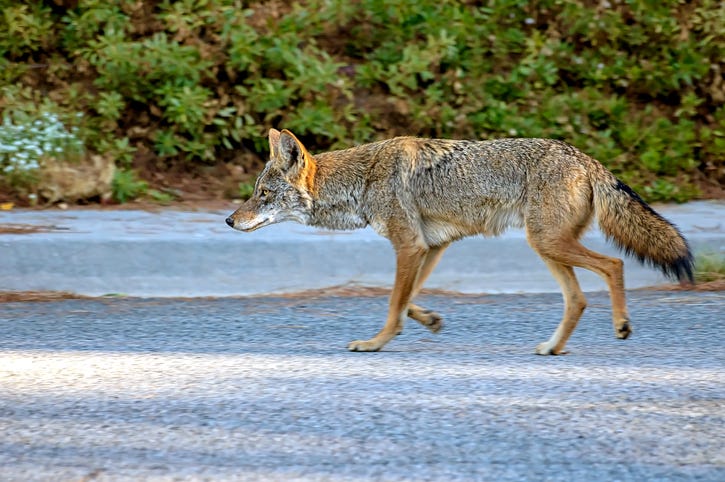
LIVONIA (WWJ) -- Livonia leaders will be getting together Monday evening to talk about ways to reduce or control the number of deer and coyotes in the Wayne County community.
The Livonia City Council's Public Safety and Health Committee announced it will be meeting to look into "what options are available concerning the culling and management" of the deer and coyote populations in the city.
A representative from the Michigan Department of Natural Resources has been invited to attend, as have the city's police chief and Parks and Recreation superintendent, along with the city attorney, a SEMCOG representative, and other officials.
The open meeting starts at 7 p.m. on June 19, at the Livonia City Hall Auditorium. All interested parties are welcome.
Chairing the meeting will be Livonia City Council member and head of the Safety and Health Committee, Kathleen McIntyre.
"What has happened is deer have learned to live and thrive in a suburban environment," she explained, in an interview with WWJ's Jon Hewett. "Some people like to see it, right? It's kinda cool to go to a park and sometimes look in your backyard and see deer — it's nature, it's great."
"But the problem is it's an overpopulation issue, an increasing number of vehicle and deer collisions, and a lot of people who live near parts or wooded areas just have all of their landscaping decimated by the deer," McIntyer said.
While most Metro Detroiters are used to seeing deer around, they may be surprised to encounter a coyote. However, according to the DNR, coyotes are in fact native to Michigan, and are not an invasive species.
What should you do if you see a coyote?
Coyotes, like any wild animal, can act unpredictably and should be treated with respect and enjoyed from a distance, the DNR says, stressing that -- for your own safety -- it's important to never intentionally feed or try to tame a coyote.
To lesson the chances of an encounter in suburban areas, DNR experts advise that coyotes are attracted to garbage, garden vegetables, and pet foods. To reduce the chance of coyote problems, residents are advised to eliminate all outside food — not just for pets — but bird seed and garbage as well. Put out the trash only on pickup day.
Another good idea: Clear out wood and brush piles; they are good habitat for rats and mice and may attract coyotes. It should also be noted that coyotes don’t like bright lights or loud sounds or the smell of ammonia or perfume.
Do not try to trap or shoot a coyote. While coyotee hunting is permitted in some areas of Michigan, discharging firearms within most cities is against the law. For your safety, NEVER intentionally feed or try to tame coyotes. It is critical that they retain their natural fear of people.
Keep small pets indoors or accompany them outside and keep them on a leash.
If a coyote is too close for comfort, try to scare it off by yelling, clapping or making other loud noises. Most coyotes are naturally afraid of people and will leave if you frighten them.
Learn more from the DNR about coyotes in Michigan at this link.

![Large coyote spotted near former Northland Mall location in Southfield [VIDEO]](https://radioimg.audacy.com/aiu-media/Coyote-d490487f-c156-42c6-a4ea-d07795064b0e.png?crop=16:9)

